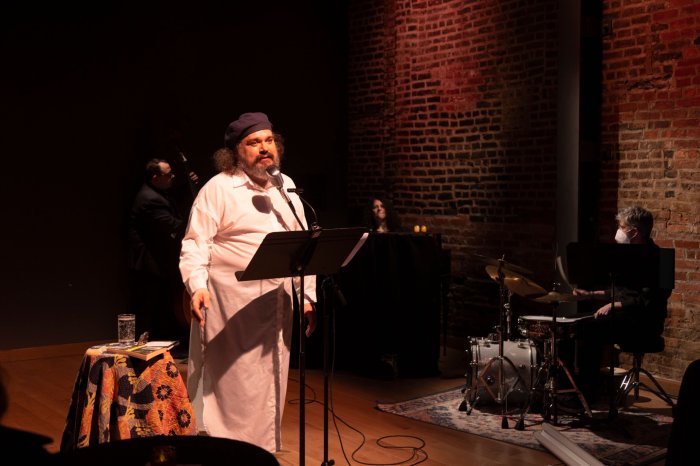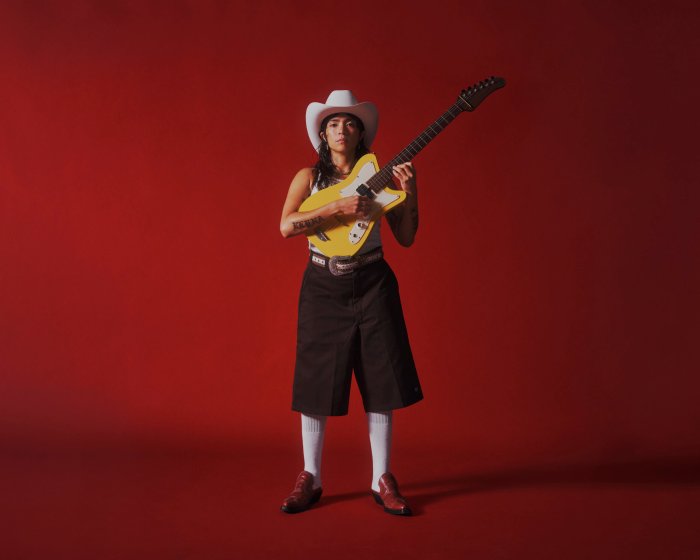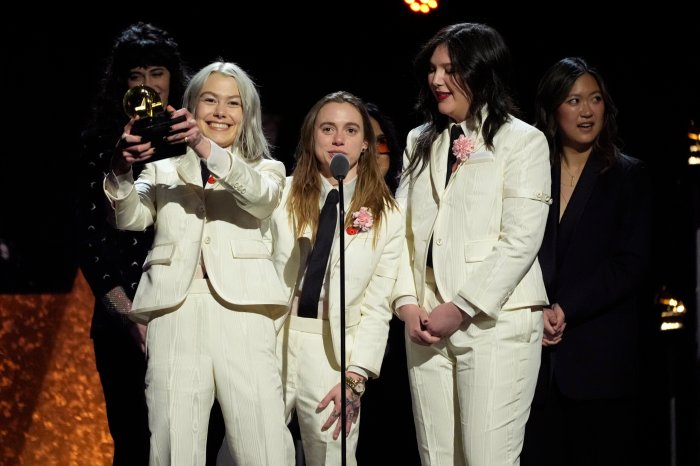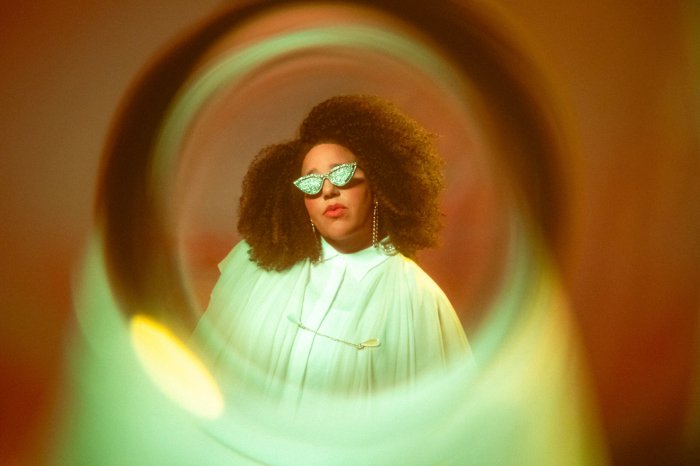BY ANDREY HENKIN | One of the nicer offerings of the Vision Festival, the annual avant-garde gathering in a city that functions as one anyway, is its Lifetime Achievement Award evening, held this year on June 11 at Clemente Soto Velez on the Lower East Side . Bestowed while its recipient is still living, it is far more appreciated than having one's face on a postage stamp – not as if anyone playing at Vision would be up for that anyway.
This year's honoree was New Orleans saxophonist/educator Kidd Jordan, a Vision stalwart for the past few years. At 73, with a performing resumé that bridges Ray Charles and Cecil Taylor and a harrowing personal tale of surviving, yet losing everything to, Hurricane Katrina, Jordan is a far more persuasive portrait of the Crescent City than Wynton Marsalis could ever be.
Kidd Jordan, at 73, turns it out over one evening's four sets.
The Vision Festival is set up in a flurry of sets across its six days. Upping the ante for the rest of the performers, Jordan demonstrated remarkable stamina by playing in four of the five sets of his special evening. While all the music was improvised, maintaining focus and energy in those kinds of environments – unprotected by song forms – is laudable for someone of any age. Of course some sets were far better than others but the full and appreciative audience was left without any question as to why Jordan was being fêted.
If the method of the evening was improvised, it was obviously rooted in a bluesy sensibility appropriate to the origins of the players. Jordan was matched in the first set with the Philly pianist Dave Burrell and baritone saxophonist Hamiet Bluiett of Illinois. At the end of the set, another pianist was introduced but he was both inaudible and invisible so the triangular nature of the music was preserved. All three players are quite capable of a slow simmer but a rollicking boil was more prevalent, particularly Burrell's freestride and Jordan's impassioned shrieks.
The set was followed by Jordan matching wits with Alabaman-cum-New Yorker violinist Billy Bang, ably supported by what functions as the Vision house rhythm section, bassist William Parker and drummer Hamid Drake. This segment of the evening would quickly become the highlight, with moments of bombast tempered by a swinging restraint that remained dynamic. Of particular appeal were Bang's vibrant double-stops over the churning rhythms, Jordan soaring overhead.
After two sets of this intensity, and in anticipation of the final group, the following two ensembles were underwhelming. Jordan led a quintet of younger musicians – trumpeter Clyde Kerr, pianist Joel Futterman, Parker once more, and drummer Gerald Cleaver – for more improvised hijinks that, while certainly well intentioned, paled by comparison to what preceded them. The lessons taken from this set were that while many pianists have followed in Burrell's manic footsteps, few equal him and Parker is at his best supported by the syncopations of Drake.
After this, Jordan took a well-needed breather as two of his sons, flutist Kent and trumpeter Marlon, presented New Orleans Pays Tribute to Kidd Jordan. From the first notes of Wayne Shorter's “Footprints,” it was obvious the kids hadn't gotten the memo about the Vision Festival. Playing actual tunes and taking long, almost too long, solo turns for each member, became tedious and paid tribute neither to Jordan's uninhibited spirit nor the city from whence he came.
The culmination of the evening came with a reprise of a Vision favorite – Jordan with near-octogenarian Chicago saxist Fred Anderson and the Parker/Drake rhythm section once more. This quartet performed a legendary set at Vision 2002 and again in 2005. Thus most of the crowd was eagerly awaiting Act III. But lightning rarely strikes twice – forget three times – and this particular encounter was not up to its predecessors.
Perhaps Jordan was finally worn out or maybe it was that Bang returned and then Chicago/ New York underground legend –literally, as he can be found playing in the subway — Kalaparusha Maurice McIntyre also joined in, muddying the proceedings. Anderson seemed both irritated and uninspired, his reunion with old friend Jordan interrupted by the musical equivalent of telemarketer phone calls. Jordan was amiable enough despite the circumstances; it was his day after all.


































